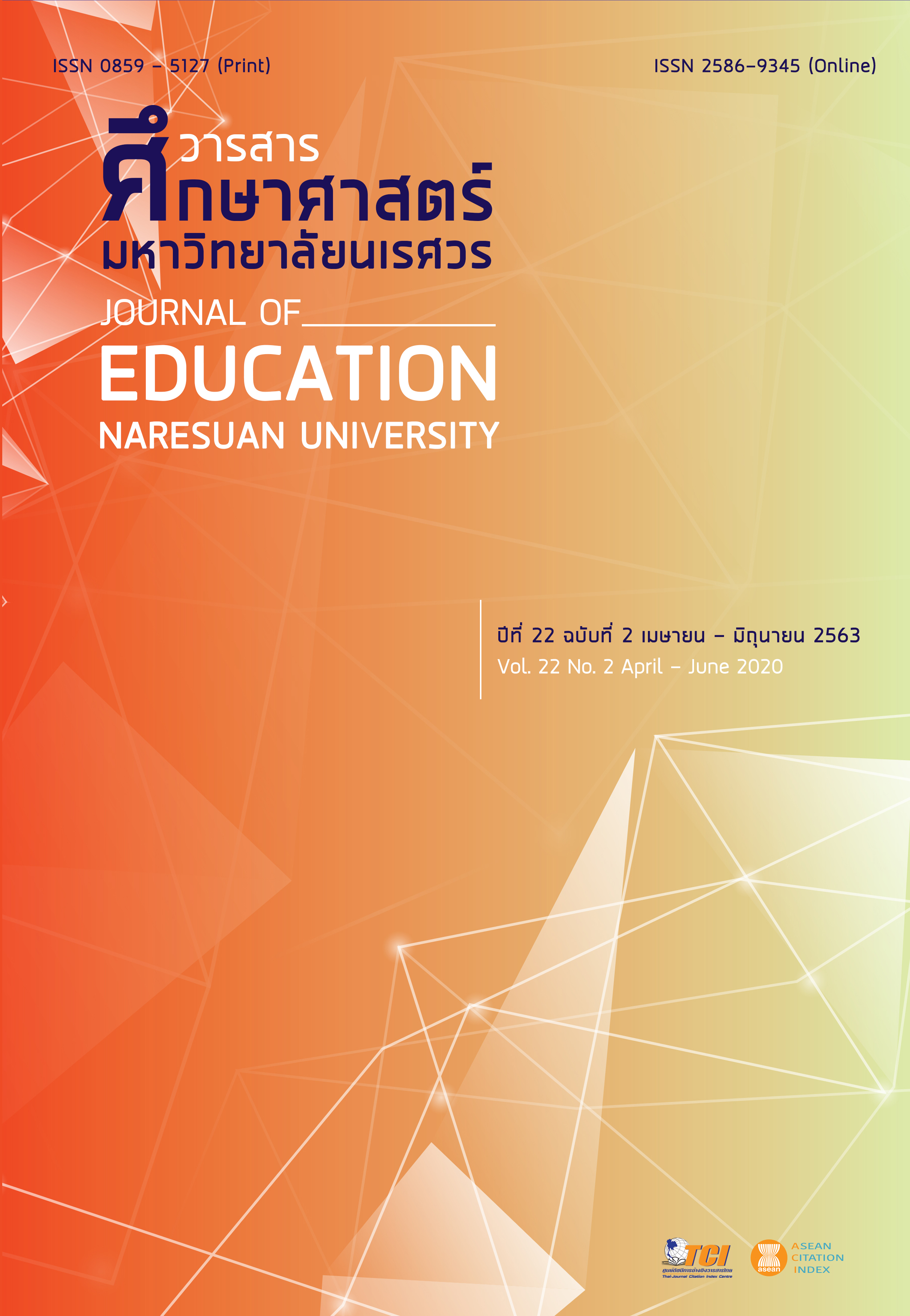A DEVELOPMENT OF AN INSTRUCTIONAL MODEL BASED-ON HAPPINESS LEARNING APPROACH TO ENHANCE THE KALYANAMITTA FOR STUDENTS TEACHER RAJABHAT UNIVERSITY
Main Article Content
Abstract
The purpose of this research was to develop an instructional model based on Happiness Learning Approach to enhance the Kalyanamitta for students teacher, Rajabhat University. The specific purpose of this research were 1) to construct an instructional model based on Happiness Learning Approach and study its quality, and 2) to implement an instructional model based on Happiness Learning Approach and study its result. The research methodology was divided into 2 steps: 1) constructing an instructional model based on Happiness Learning Approach and studying its quality, and 2) implementing an instructional model based on Happiness Learning Approach and study its result. The sample was the 3rd year students who enrolled in the 2nd semester of the 2017 academic year at the Faculty of Education, Chiangrai Rajabhat University, drawn by simple random sampling. Research instruments include: 1) an instructional model based on Happiness Learning Approach to enhance the Kalyanamitta for students teacher, Rajabhat University and guidebook, 2) evaluation form, and 3) observation form. The data were statistically analyzed using the percentage, mean, standard deviation, and t-test dependent sample. The results of the research were as follows;
1. The results and the quality of the instructional model found;
1.1 The instructional model based on Happiness Learning Approach consisted of 4 parts: Part 1 an orientation of the model. Part 2 the structure of the model which has 7 steps: 1) the use of various sense in perception, 2) the analyzing and reasoning, 3) the comparison between same and difference or good and bad, 4) the experiment as expected, 5) the content and concept summary, 6) the authentic implementation, and 7) the improvement and development. Part 3 the implementation of the model to the target group with the teacher’s guidebook, and Part 4 the impacts on the learners. The model was verified by the experts was rated a high level.
1.2 The effectiveness index of the instructional model based on Happiness Learning Approach to enhance the Kalyanamitta for students teacher, Rajabhat University is equal to 0.748.
2. Results of the instructional model implementation were as follows;
2.1 The students’ behavior of Kalyanamitta during learning with the instructional model based on Happiness Learning Approach was at high level ( = 3.19, S.D. = 0.81).
2.2 The Kalyanamitta of the students’ before learning was at high level and after learning was highest and when compared them found that the Kalyanamitta after learning through
the instructional model was higher than before learning at the .01 level of statistical significance.
Article Details
The owner of the article does not copy or violate any of its copyright. If any copyright infringement occurs or prosecution, in any case, the Editorial Board is not involved in all the rights to the owner of the article to be performed.
References
Erylimaz, A. (2015). Positive psychology in the class: The effectiveness of a teaching method based on subjective well-being and engagement increasing activity. International Journal of Instruction, 8(2), 17-32.
Joyce, B., & Weil, M. (2009). Model of teaching (8th ed.). Englewood Cliffs, New York: Prentice-Hall.
Khammani, T. (2010). Science of teaching: A body of knowledge for effective learning management (7th ed.). Bangkok: Chulalongkorn University Press. [in Thai]
Khiaolueang, D., Kaewurai, W., Hingkanon, P., & Viboonrangsun, S. (2013). The development of the thought reflection learning model to enhance ethical decision-making in nursing for student nurses. Journal of Education Naresuan University, 15(4), 1-13. [in Thai]
Khuanrum, J. (2002). Learning with a master teacher reform. Bangkok: Office of the National Education Commission. [in Thai]
Kusolsong, S., & Sittisomboon, M. (2017). A development of instructional model to enhance meta-cognitive strategies for Rajabhat University students. Journal of Education Naresuan University, 19(1), 114-130. [in Thai]
Ministry of Education. (2003). National Education Act B.E. 2542 (1999) and Amendments (Second National Education Act B.E. 2545 (2002). Bangkok: Kurusapa Printing Ladphrao. [in Thai]
Rattanawimol, C., Kaewurai, W., & Hingkanont, P. (2015). The instructional model development focusing on standardized patient with circle of trust to enhance learning happiness for nursing student. Journal of Nursing and Health, 9(3), 179-192. [in Thai]
Tangchitsomkit, W. (2013). Teaching profession (3rd ed.) Bangkok: Odian Store. [in Thai]
Thita, S., Kaewurai, W., & Chaisanit, P. (2016). A development of an instructional model based on positive psychology approach enhancing the happiness of learning for students of Faculty of Education, Rajabhat University. Journal of Lampang Rajabhat University, 5(2), 143-163. [in Thai]


